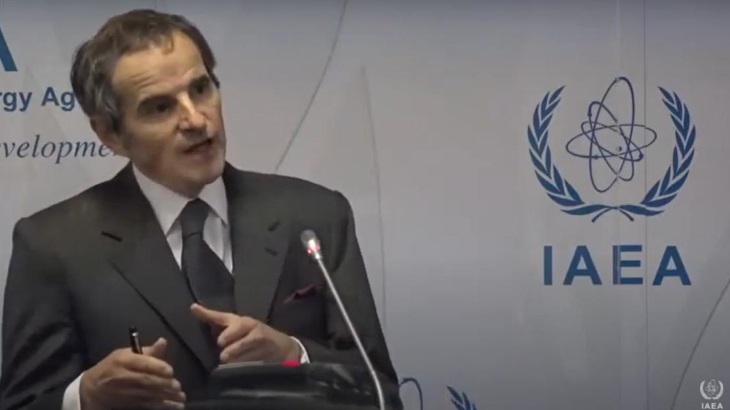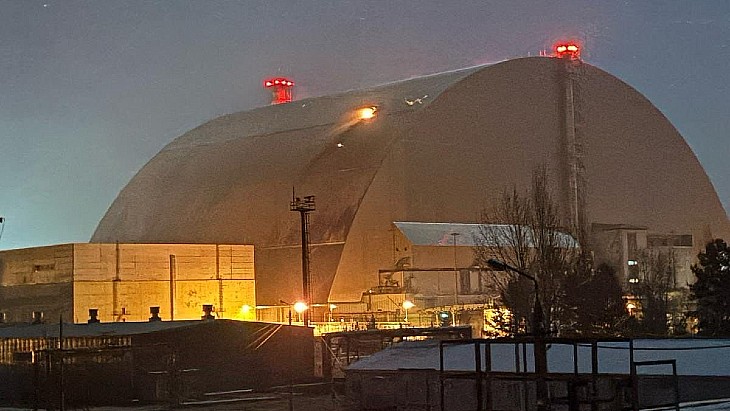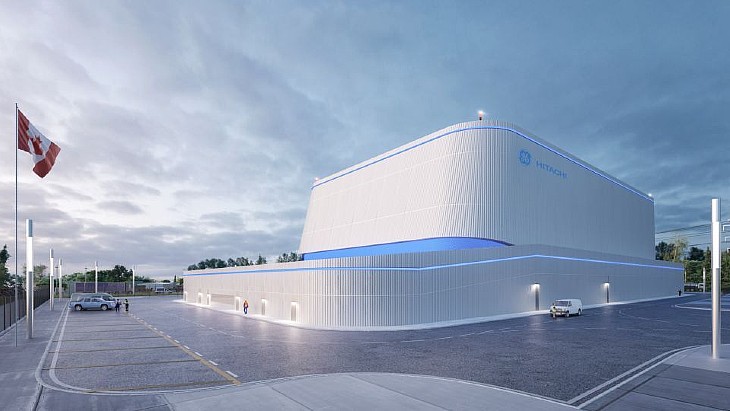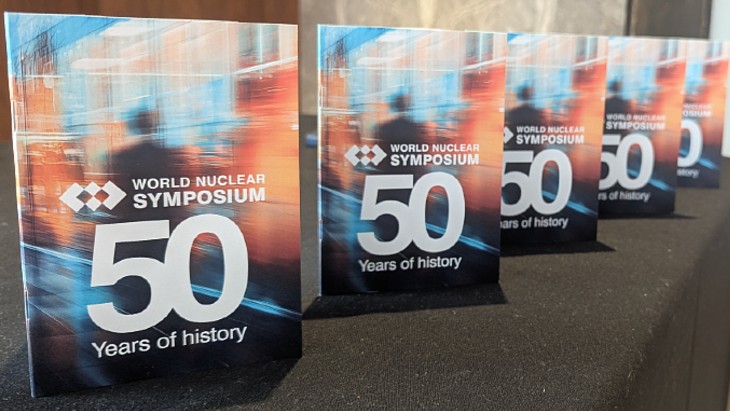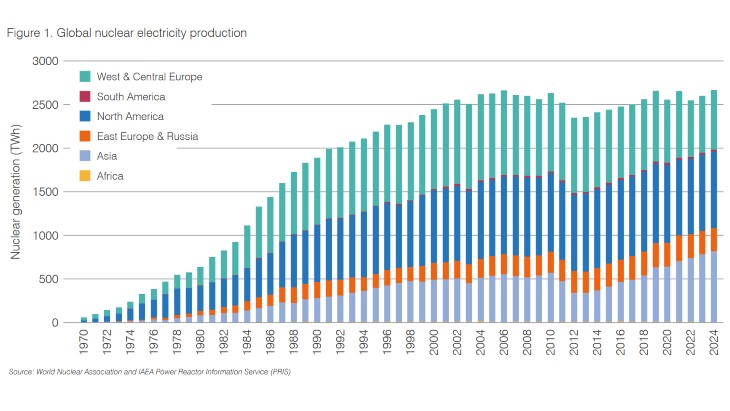The media had been invited to hear from Grossi yesterday but the briefing was delayed. He came to the rescheduled briefing following a "long discussion", he said, with the president of the Atomic Energy Organisation of Iran, Ali Akbar Salehi.
They had agreed on "a couple of things" related to the temporary technical understanding, he said. "We agreed, number one, that the information collected by our technical equipment at different locations in Tehran is going to be saved and will continue to be under the custody of the Agency at every site where it is at the moment. Number two, that the equipment and the verification and monitoring activities that we agreed will continue as they are now for one month, expiring then on 24 June 2021."
Grossi was asked for specific details of the understanding and how that avoided the IAEA "flying blind", which he had said in February he wanted to avoid. The need for that agreement had proved to be increasingly important in the last three months, he said, given that "activities" in Iran had increased "qualitatively and quantitatively".
In addition to the joint statement by Iran and Tehran three months ago, they have a number of technical documents, he said. "These detail the places where we are basically having cameras, flow meters and electronic online systems to check on the enrichment that is taking place in the different locations. So, there's not much mystery. I mean, what we cannot get into is exactly what place, what kind of equipment, because this is of course safeguards, confidential information."
The monitoring work is not at the same level as the additional transparency measures that were provided by the Joint Comprehensive Plan of Action (JCPoA) and the Additional Protocol, he noted.
"I think we should all be reminded of the fact that this temporary technical understanding, it's a sort of stop-gap measure. It's something that we came up with as a way to avoid, as I was saying before, flying completely blind, losing essential information, to allow us, hopefully, if those levels of access are restored for us, to reconstruct what may have been happening."
The IAEA and Iran agreed in February that, on the expiry of the technical understanding, the data that was gathered in those three months "would be erased" Grossi said, adding, "and this is not going to happen". Asked whether the data will be erased at the end of the four months, he said, "We are going to discuss that when we get to that point."
Asked whether the IAEA was in effect "flying blind" with Iran, Grossi said: "No, because there is a combination of things. On the one hand, there are a number of verification and monitoring activities that continue normally and we know what equipment is there. We have our own estimations, calculations, of what is going on, and we know that we can support that at the right time, with the [background] information. We would be completely blind if we were not able to, at the right time, reconstruct and reconcile the information."
He added: "I want to stress: This is not ideal. This is like an emergency device that we came up with in order to allow us to continue having these monitoring activities while at the same time recognising the fact that there was a law passed by the Parliament of the Islamic Republic of Iran suspending a number of rights. So we had to find some way."
Grossi refuted comments made to Iranian media by a representative to the Supreme National Security Council of Iran yesterday, that Tehran had agreed the extension to the technical understanding by one month based on certain conditions.
"The IAEA never accepts any conditions for the discharge of its mandate and actions," he said. "We have a mandate and we have certain authorities which are derived either from agreements, like the Additional Protocol, the Comprehensive Safeguards agreements, or agreements bilaterally entered into by the Agency and Member States. So what we agree is what we agree, and there are no conditions. Absolutely not."
On whether, in the absence of agreement on the JCPoA, the level of cooperation between Iran and the IAEA would revert to merely a safeguards agreement, Grossi said: "It's something we will need to see at that point in time. There is the important process of the JCPoA which is ongoing, which is not involving the Agency, so far. This is one thing that I agreed with Dr Salehi, that we will keep in touch, monitoring the situation, and we will discuss what to do, according to the circumstances we are talking about on 24 June."
On the Additional Protocol, he said "it continues to be the case" that Iran would be prepared to return to the provisional implementation of the Additional Protocol if and when an agreement, in the context of the JCPoA negotiations, is reached. "There is no separate discussion about the Additional Protocol being implemented outside this framework," he said.
Asked if he was "worried about who is coming next" in Iran, following presidential elections there next month, he said: "Why would that worry me? There is something in international law called 'continuity of the state'. We deal with Iran."
The technical understanding had been reached "at a very difficult moment", he said, and there had been "relief in many quarters". Today's announcement of an extension is a matter of deciding that this arrangement "continues to serve a purpose".
"That agreement and this one allowed us to leave the door ajar and so it stays for now," he said.
Asked what he will be able to report about Iran in his upcoming quarterly report to the IAEA's Board of Governors, Grossi said: "We expect to be able to report in roughly the same manner. I don't foresee any technical problems in that regard. This is a process which is running in parallel. We had a couple of rounds - one in Tehran and one in Vienna this week - and the effort continues … I expect, I hope, to have my technical advisors have yet another round of conversations with their Iranian counterparts in the next few days, and then we will decide what we can report about. It' a very complex detailed process and it's ongoing."

